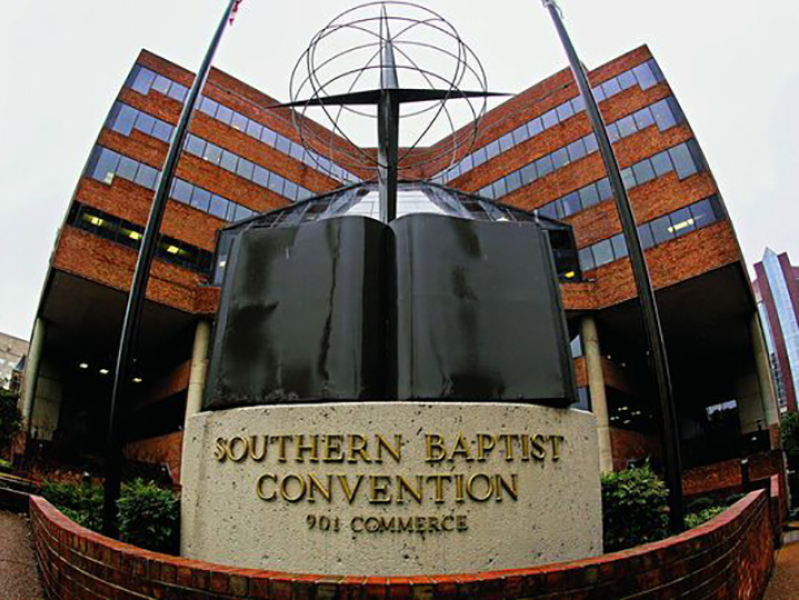
Regardless of how the Supreme Court rules on the issue of same-sex marriage, one Christian denomination has a plan to skirt around anti-discrimination laws, particularly in regards to the LGBT community. The Southern Baptists Convention have released their plan online.
According to Ian Millhiser of ThinkProgress, the manual, which was co-authored by the Southern Baptist Convention and the Alliance for Defending Freedom, warned conservative religious groups opposing LGBT rights could face a grim future. The manual, entitled Protecting Your Ministry from Sexual Orientation Gender Identity Lawsuits, argued that the concept of "sexual liberty" is starting to trump religious freedom, which has left an impact on Christian churches, individuals, schools and ministries.
"This concept has led to the passage of sexual orientation, gender identity ordinances (SOGIs)," the manual stated in its introduction. "SOGIs elevate sexual special interests over our cherished fundamental freedoms, especially religious freedom. These ordinances place terms like 'sexual orientation' or 'gender identity' in the same category as race or religion."
ThinkProgress, a self-described promoter of progressive values, identified the Alliance for Defending Freedom, or ADF, as "a leading anti-gay legal organization." Given the organization's ties to several evangelical ministries, Millhiser feared that other Christian denominations may follow the advice outlined in the 44-page manual.
"It is likely that the manual's advice will reach beyond the Southern Baptist community and be implemented by employers of other faiths who do not wish to comply with anti-discrimination law," Millhiser wrote. "Attorneys who bring suit against these employers may also introduce the manual as evidence that a religious employer's so-called minister is really just a janitor."
However, the ADF contended in its manual that SOGIs "are not designed for the innocent purpose of ensuring all people receive basic services."
"Their practical effect is to legally compel Christians to accept, endorse, and even promote messages, ideas, and events that violate their faith," ADF wrote. "Those promoting these ordinances use public sympathy - gained through misleading rhetoric about 'discrimination' - to silence dissenting voices. And no ministry will remain immune if they remain true to Scripture's teachings about sexuality and gender."
In its argument, ADF outlined various examples on how SOGIs have been enforced on Christians in the United States.
"SOGIs have been invoked to attempt to force Christian photographers, bakers, and florists to participate in same-sex ceremonies, in violation of their religious beliefs about sexuality and marriage," ADF wrote. "They have been used to attempt to force a Christian printer to create advertisements celebrating a 'gay pride' festival. SOGIs have been used to attempt to force Christian owners of wedding venues to host same-sex ceremonies, and Christian adoption agencies to choose between placing babies in motherless or fatherless same-sex homes or go out of business."
The ADF emphasized that its manual was meant for all Christians, not just Southern Baptists.
"This handbook is meant for all types of churches, including Catholic, Orthodox, and Protestant denominations, as well as Catholic and Christian schools," ADF wrote. "'Christian ministries' include a broad spectrum of nonprofit, faith-based organizations such as pregnancy resource centers, religious publishers, campus ministries, relief agencies, missions groups, hospitals, counseling centers, adoption agencies, and food banks."
According to Millhiser, the Supreme Court recognized a "ministerial exception" to anti-discrimination laws in the 2012 decision Hosanna-Tabor Evangelical v. EEOC. Millhiser acknowledged that "there are strong arguments for applying such an exception to legitimate ministers of a faith."
"[T]he members of a religious group put their faith in the hands of their ministers," the Supreme Court wrote in its ruling. "Requiring a church to accept or retain an unwanted minister, or punishing a church for failing to do so, intrudes upon more than a mere employment decision. Such action interferes with the internal governance of the church, depriving the church of control over the selection of those who will personify its beliefs."
Millhiser noted that not all employees who work for churches and other Christian organizations qualify as a "minister."
"Churches and other religious employers typically employ numerous lay people in roles ranging from groundskeepers to accountants, and these non-ministers are fully entitled to invoke civil rights laws if they face discrimination in the workplace," Millhiser wrote.
However, Millhiser warned that the advice printed in the ADF manual could negatively affect anyone who cited it in a court of law.
"Judges typically do not look kindly upon litigants who try to game the law by assigning superfluous duties to their employees in an effort to fool the courts into believing those employees are something that they are not," Millhiser wrote. "And employers who follow the manual's advice may find themselves in hot water once opposing counsel introduces the manual's advice for employers seeking to circumvent civil rights law into evidence."
While no Christian organization can be completely free from attacks, ADF asserted that its suggestions would help place others "in a more defensible legal position should it face a lawsuit for discrimination."
"Preparing yourselves legally will give your group or institution greater freedom to continue presenting the Gospel clearly and effectively to your community - and that freedom may well make an eternal difference for lost and hurting souls all around you," ADF concluded.






